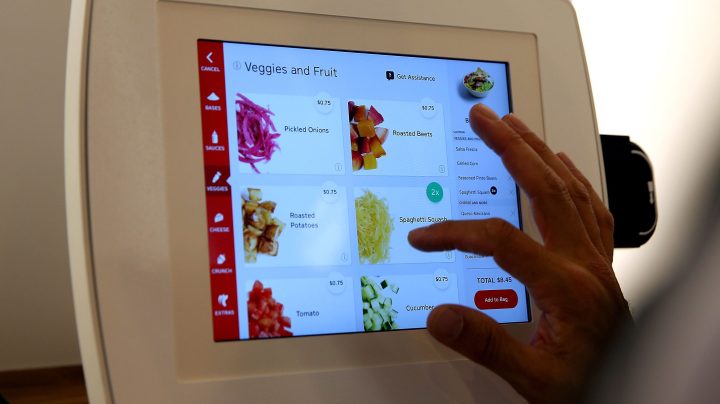
Artificial intelligence will impact workplaces and cost some workers their jobs
Artificial intelligence will impact workplaces and cost some workers their jobs

Two reports out this week, one from the McKinsey Global Institute and the other from Pew Research, look at how artificial intelligence is likely to affect our jobs in the future. Both find that generative AI will change, but largely preserve, higher-paid, white-collar jobs that require more education.
However, it’s lower-paid jobs in customer service, food service, office support and factories that McKinsey finds are more likely to start disappearing because of AI and automation.
Have no doubt: AI is coming for all of us, whether you work at a coffee shop, a factory or an office.
“Everyone’s job is going to be affected,” said Bhaskar Chakravorti at the Fletcher School at Tufts University.
The question we should all be asking, he added, is “Does that mean my job is going to be displaced? Whether my job is going to be cut in half or whether my job actually becomes more enjoyable because I have an assistant?”
Automation and AI already do all sorts of jobs in grocery stores, at factories and in customer support.
“If you think about somebody who’s working in a contact center, either responding to customers on the phone or through email, chatbots do very similar things,” said Michael Chui at the McKinsey Global Institute.
By 2030, nearly 12 million people may need to change jobs because of advances in automation and AI — mostly those working in lower-paying positions with a lot of repetitive tasks. But that doesn’t have to be a bad thing, Chui explained.
“A lot of the growth that we see is in occupations that have higher wages,” he said, “and so if we can help the labor force and individual workers transition from work that is lower-paid into work that’s higher-paid, that’s all for the good.”
But he added that it will be a huge challenge. And generative AI is going to affect lots of those higher-paid jobs too — some in major ways. Admittedly, there’s still a lot of uncertainty about what that’ll look like, per Rakesh Kochhar at Pew Research.
“Will it help web developers become more creative, perhaps turn to other activities that they can do while AI does working with computers? Or does it just replace the web developer? We don’t know that,” he said.
But, Kochhar added, Pew found that many people are optimistic that AI could change their jobs for the better.
There’s a lot happening in the world. Through it all, Marketplace is here for you.
You rely on Marketplace to break down the world’s events and tell you how it affects you in a fact-based, approachable way. We rely on your financial support to keep making that possible.
Your donation today powers the independent journalism that you rely on. For just $5/month, you can help sustain Marketplace so we can keep reporting on the things that matter to you.

















